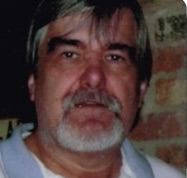I usually don’t write tributes. I’m suspicious of them. Too often, I know the person being featured, and their life stories end up sounding too heroic.
I made an exception when Mike Siroky’s daughter Meghan asked me to write about him. Mike and I had been colleagues and friends since the mid-1980s. When he started work at the South Bend Tribune, I found a kindred spirit.
In some ways, we were outlaws in the Tribune’s newsroom. We challenged authority because that’s what good newspaper people did for the previous 100-some years. We asked questions that others didn’t, because that’s the only way dumb ideas are defeated.
We challenged each other as well. Mike and I loved good arguments. Any topic would do. We also loved hard work, long hours and cheese chili dogs.
When I found out about Mike’s death at age 67 on Oct. 8, I began remembering the adventures we had together. It was an honor to write about him, and this is what I wrote.
+ + +
With Mike’s passing, we literally are at a loss for words.
People who loved Mike were as delighted by his words as he was. He wrote and spoke tirelessly. He had so many thoughts and stories to tell that he never seemed to finish one before starting another.

There was always something else he wanted to add.
Few of us were born to be writers. We wanted to be astronauts or baseball players or movie stars. We settled into writing because our bigger dreams don’t work out.
Mike wasn’t like that. He never seemed to want anything else. He reached readers by the thousands at his beloved Gary Wirt High School, at the Indiana Daily Student, at newspapers in Tennessee and Indiana, and eventually all over the internet.
His stories rarely went in a straight line, and neither did his life.
He grew up in Gary, where his father worked in the steel mills. Mike’s grandfather, uncle and father all died in their 40s, and Mike was a teenager when his father’s death forced him to become the man in his household.
During his years at Wirt, he worked odd jobs to help keep his family fed. He knew he wanted to write, but his first step out of high school wasn’t toward college. He went to the steel mills for a couple years instead to save up some money.
He treasured his years at Indiana University, maybe because he had done so much hard work to get there. He studied journalism, wrote sports at the IDS and coached his wife Patti’s softball teams. His favorite among his I.U. stories was about how Coach Bobby Knight kicked him off the airplane headed to an away game because, among other things, he wasn’t wearing a tie.
Mike had several offers after graduation but chose to move to Knoxville, where he eventually began writing about the University of Tennessee women’s basketball team. He took the women’s game seriously, long before other sports writers did, and became a lifelong friend of legendary coach Pat Summitt.
Soon after he returned to his home state he was hired to work on the copy desk at the South Bend Tribune. While there, he helped start weekly news pages called Hometown to bring coverage to the communities that traditionally were ignored by newspapers.
It probably had something to do with his upbringing in Gary, but Mike supported every underdog he could find. That’s how his Hometowns made heroes out of ordinary folks just doing their best.
He had a steel-mill approach. He enjoyed his work but didn’t like people looking over his shoulder or telling him how to do it. He didn’t dilly-dally. If he had a story idea, he picked up the phone and started making calls. He liked finishing assignments because it gave him a chance to start a new one.
Mike won awards for his writing but he also looked for younger people who wanted to learn how. Dozens of writers will say they got their first chance to write because of Mike.
After he left the Tribune, he worked at a half-dozen more newspapers. Some of those jobs would be for only a month or two in places like Wyoming or Hartford City, Ind. Someone had his name on a list. When an editor was needed for a short term in an emergency, Mike would get the call.
When he would check in with friends in those days, our first question would be, “Where are you now?” He didn’t mind moving or living in small apartments with no furniture. As long as he had a chance to write, he would be happy.
And sometimes when newspapers weren’t hiring, he didn’t mind working in a warehouse or casino. Those jobs had dignity, too. They gave him more stories to tell.
Here are a few more things you might already know about Mike:
He had his own health scare – a serious case of cancer – in his 40s. He had expected to die, like all the other Siroky men in his life. When he survived, he felt like everything afterwards was a bonus. He was amazed that he was able to see his daughters grow and that he was able to know his grandchildren.
He was a master at maintaining a grudge. If you mentioned the name of someone who wronged him three decades ago, he would ask with a chuckle, “How come you still like that guy?” But for every person he didn’t like, he had dozens that he would call his friends.
He was a storehouse of information on items as obscure as big-time pro wrestling or Tennessee high school girls basketball. He knew how to get tickets to events that were sold out. If his truck broke down on the way home from work, he would enjoy walking the rest of the way because it gave him time to write more stories in his head.
You had a better chance being his friend if you were a White Sox fan. He was glad if you were a Cubs fan because it would give him something to tease you about when they lost.
He hated funerals. He loved reunions.
It’s hard to put this stuff about Mike into words. It would be better if he were here to tell the stories himself. He would like that.
